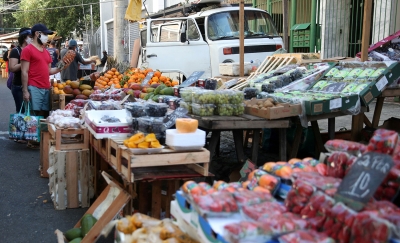Brazilian traders

Brazil's economy is the largest in Latin America and one of the most influential in the world. It operates as a mixed economy that combines state intervention and a significant private sector. The country is rich in natural resources, which contribute to its strong agricultural and mining sectors. Key exports include soybeans, iron ore, crude petroleum, and coffee. Brazil is also a member of BRICS, alongside Russia, India, China, and South Africa, which highlights its strategic importance in global economic discussions.
The Brazilian financial system is sophisticated, with a well-developed banking sector and a vibrant stock market, the B3 (Brasil Bolsa Balcão). The Central Bank of Brazil plays a crucial role in regulating monetary policies and maintaining economic stability. Brazil's economy has faced challenges such as inflation and fiscal deficits, but it continues to show resilience through structural reforms and diversification efforts.
Trade relations between Brazil and the Middle East, as well as West Asia, have been growing steadily. Brazil exports a variety of products to these regions, including foodstuffs like meat and poultry, sugar, and grains. In return, it imports oil and petroleum products, fertilizers, and chemicals. The trade balance is generally favorable for Brazil due to its strong agricultural exports.
Brazil has been actively seeking to enhance its trade ties with Middle Eastern countries through bilateral agreements and participation in trade fairs. This engagement is part of a broader strategy to diversify its export markets and reduce reliance on traditional partners like China and the United States. The halal food market is particularly significant, as Brazil is one of the largest exporters of halal meat to Islamic countries.
Overall, Brazil's interactions with the Middle East and West Asia are characterized by mutual economic interests and growing trade volumes. As Brazil continues to expand its global economic footprint, these regions will likely play an increasingly important role in its trade strategy.
 HdHd10 months ago
HdHd10 months ago ProfileCoal
ProfileCoal Oscar, Brazilian Natural Stone10 months ago
Oscar, Brazilian Natural Stone10 months ago ProfileGranite, Quartzite, Turquoise, Emerald
ProfileGranite, Quartzite, Turquoise, Emerald



